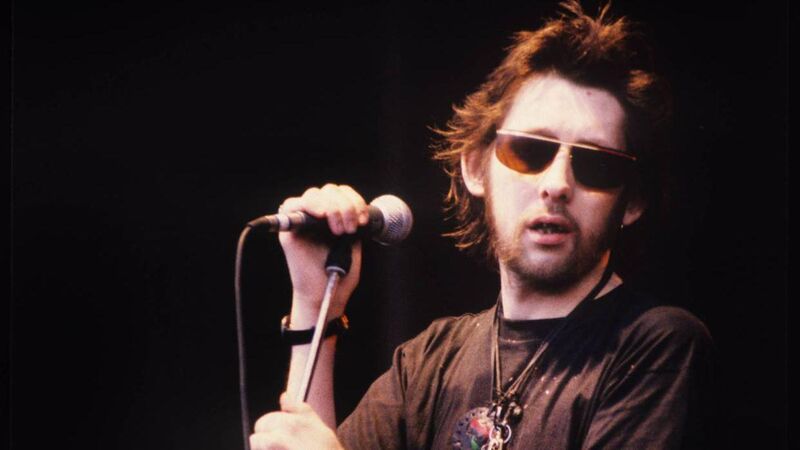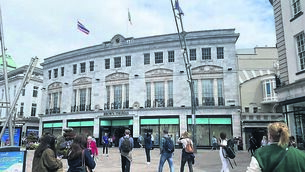Tension, boredom... so how do you avoid drink at Christmas?

Shane MacGowan’s struggles with addiction were well known. The star died last week, following an illness.
But if you’re a recovering alcoholic, Christmas can be a time of tension, regret and lots of boring fizzy drinks - Or coffee.
Don’t knock it. It’s about as close as you’ll get to experiencing a quick hit. Pathetic, eh? Still, it goes well with chocolate and warms you up.
Shane MacGowan’s ne’er do wells in would have scoffed if offered some caffeine.
The former Pogues’ frontman and brilliant lyricist won a Daily Mirror literary competition at the age of 13 when he wrote a short story about a group of Irish meths-drinking social outcasts. Interviewed by a newspaper at the time, he said he had been writing since about the age of five and hoped to make it his career.
Clearly, Shane had an understanding of what being an outcast might do to a person. Being adrift and Irish in England and succumbing to drinking methylated spirits was a reality for some.
In all the obituaries and tributes to Shane, one description stands out. He has been called an ‘empath’, which is a person who feels more empathy than an average human. Perhaps that explains the drug and alcohol addiction that was part of his life.
Maybe he felt too much pain and wanted to numb himself from the harsh realities of life; the wars, the homelessness (he reportedly used to hand €50 notes to down-and-outs on the streets) and abuse meted out to the vulnerable.
You couldn’t really say that MacGowan glamourised drink. The sight of him swigging from a bottle while holding a microphone in his other hand was hardly something to be emulated – although it may have appealed to rock ‘n roll renegades who never think of the morning after. Shane once boasted that most of his 300 songs had been penned while under the influence.
“I haven’t joined a band to drink milk,” he said.
Those of us who had to give up drink didn’t embark on sobriety lightly. We love the morning after; the clear head, the early rising, the slight smugness that we are headache-free while our friends that imbibed feel crap.
But more than 30% of people who attempt to stop drinking relapse in their first year of sobriety. According to The Recovery Village in the US, more than 70% of people struggling with alcohol abuse will relapse at some point.
Yes, hours with nothing specific to do can weigh heavily on the addict. You think drink will give you a lift and will be fun. Have you learned nothing? (I’m addressing myself here.)
The centre’s tips for coping with Christmas include avoiding people, places or things that could weaken your resolve. It says you may have to “reconsider family gatherings. People in early recovery might have to opt out of them, especially when they centre on drinking. An alternative is to attend but take breaks to call a sponsor or a sober friend. Plan to drive your own car or make other travel arrangements so you can leave at any time you choose.”
I can never understand why anyone would want to drink non-alcoholic beer or wine.
The Rutland Centre does not recommend it, pointing out that “the drinking ritual paired with the smell and taste of alcohol can trigger a desire to drink.”
Say you’re at the office party. Spirits are high and people are enthusiastically buying rounds, asking you what you’d like to drink. The advice is: “Be clear and unapologetic in any statements you make about drinking – such as ‘I am not drinking alcohol, thanks, but I’d love a soft drink.’”
A recovering alcoholic has to remind him/herself that “for you, there is no such thing as ‘just the one.’ Whatever you do, don’t ‘test’ yourself. Yes, you might be able to have one drink and leave at that. Until tomorrow, or next week, when you think you’ve cracked the addiction thing and you’ll have just two drinks. It will only accelerate – don’t go there.
None of this is to suggest that a dry Christmas is a boring one. Once you’ve cracked the sobriety thing, it can be great fun. Good food and company is the name of the game. But do stay alert to temptation.







 App?
App?




